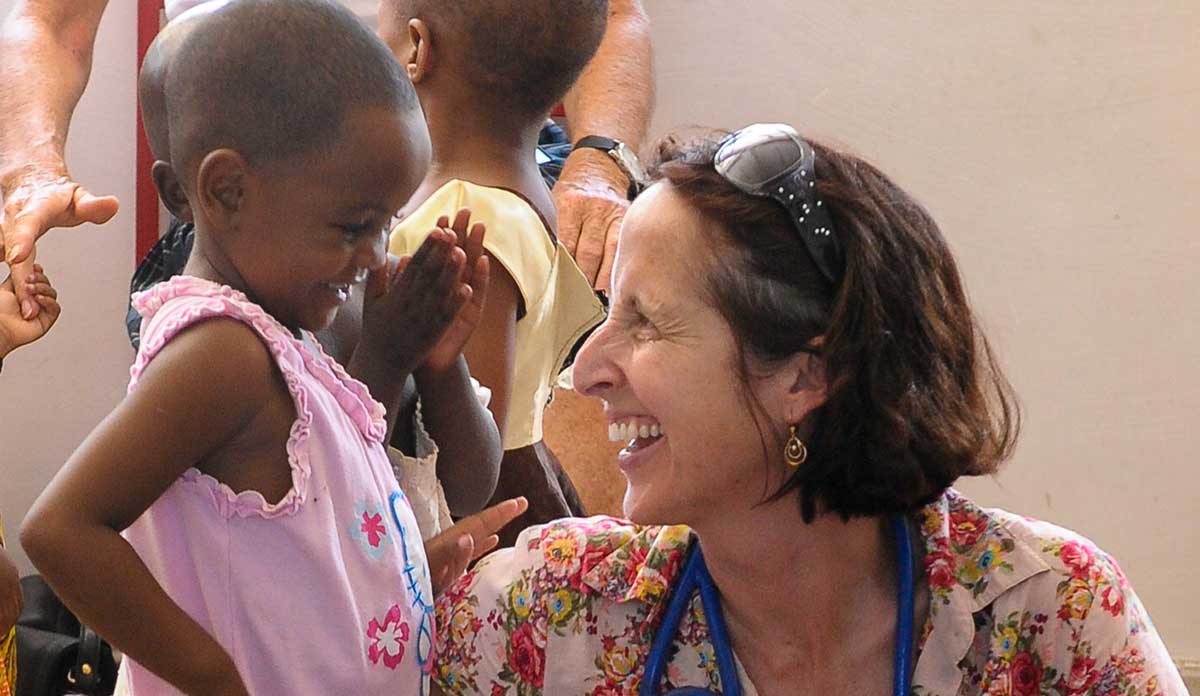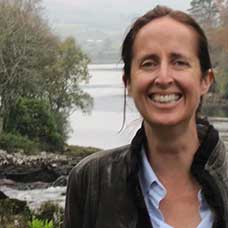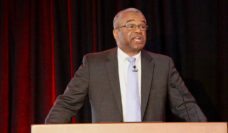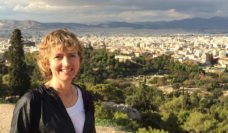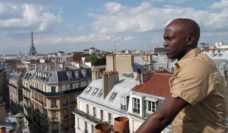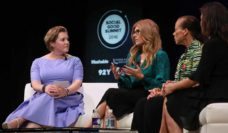Beating cancer once is a miracle of modern medicine. Surviving it a second time is a rare privilege afforded very few. I should know. I’ve done both recently while working with children with (often late stage) cancer in a resource-limited setting.
Cancer is full of surprises: from the initial shock and general horror of the diagnosis; the weird way the symptoms manifest (hair loss everywhere but still had to wax my legs); the profound love that those close to you surround you with; to the delightful surprise of old friends from a distant misty past reappearing to offer support (mostly in the form of tea and chocolate).
Coming face to face with a personal cancer diagnosis as a pediatric oncologist (especially in Tanzania where it is mostly raw and late and often horrific) should not be so shocking. I guess it’s hard to prepare yourself for such a blindsiding reality check. The shock is visceral. And yet it has been a strange (scary) but remarkably educational journey.
Of course there are down sides. I’ve lost my sense of immortality for one. Random aches and pains, once barely acknowledged, now lead instead to occasional sleepless terrors at 4 a.m. which vanish as the sun comes up. Then there’s the transient loss of self – for several years during and immediately after treatment I felt less human and more like an amorphous blob. My skin didn’t feel right, my clothes didn’t fit. My heart ached. It didn’t last but it wasn’t a fun phase. There’s also the sudden onset (recovery from and then relapse-induced reappearance) of menopause to contend with. Without consultation, cancer stole the choice (I had unconsciously already made), making it feel like an injustice rather than the decision it was.
‘Save the Girls.’ I get what it’s trying to say but to be honest, it is misdirected in my opinion. ‘Save the girl’ is far more important and valuable.
Not to mention the loss of the breast. Which brings me to a particular irritation of mine with a well-known campaign – ‘Save the Girls.’ I get what it’s trying to say, but to be honest, it is misdirected in my opinion. ‘Save the girl’ is far more important and valuable. Do I care that I am now lopsided? A little, for sure, but a recent sighting of my naked self, post-shower, highlighted just how little. I studied and silently bemoaned my least favorite body part and the fact that despite my now-healthy vegan teetotaling exercising lifestyle I was officially unlikely to ever lose my wobbly waist. It was only after a few seconds pondering this that I suddenly, with a laugh of surprised relief, realized that I completely overlooked the missing boob!
I believe the medical world is far too focused on ‘saving the girls’ which means they often don’t consider or explain other viable options. I loved my medical team. My oncologist, a close personal friend, directed my treatment while calmly including me in all decisions. I felt heard and respected even at my most panicked. My surgeon could not have been better or kinder and I’d choose him again (obviously hoping that won’t be necessary). But at the first diagnosis (and before I relapsed) when I mentioned mastectomy, he explained that survival rates were comparable with either mutilating surgery alone or combining minimal surgery and radiation … ‘saving the girls’ hurray! And that is true. But I’m hoping the bar is set slightly higher than survival. Five weeks of radiation is not without consequences – short and long term – nor, it turned out, was the tiny 5% risk of leaving breast tissue to relapse that inconsequential. Mastectomy is not mutilating. It is an important treatment option with fewer side effects and risks than some other more popular options. We need to stop using words like that when presenting options to patients.
As a doctor I was so used to discussing statistics that it was only as a patient that I understood, or learned the hard way, how meaningless they are. Eighty percent of women with localized triple negative breast cancer are cured with modern treatment. Sounds great until you have a real chance of being in the 20%. Someone has to be, right? I joked with friends to stop telling me about all their aunts, cousins, and sister-in-laws who had survived breast cancer as all those success stories were stacking the odds against me. That clearly came back to bite me!
Despite all the trauma a cancer diagnosis delivers, if you survive it you can gain so much of value. I learned simple truths that should have been obvious to me as a doctor: that ‘bad news is better than no news,’ for example. How many times did I leave the hospital in Dar es Salaam late in the evening without informing a family of a last minute email result, telling myself I’d give them one more night without the reality of cancer in their lives? When in fact, the torture of uncertainty is far less bearable than any diagnosis I could explain. Certainty brings a relief.
Another lesson was to find out that I’m not, in fact, indispensable – the service in Tanzania ran beautifully without me. The local team stepped up and owned the entire program. It was a magical thing to witness and something that made me very proud.
I also learned about symptoms in a way that is only possible by living them: constant nausea is worse than vomiting, and constipation is sometimes really something beyond pain. If it wasn’t so toxic I’d be recommending every aspiring oncologist take at least one course of chemotherapy.
Mastectomy is not mutilating. It is an important treatment option with fewer side effects and risks than some other more popular options.
I learned about nutrition and exercise, about mindfulness and healthy living (mostly through my amazing brother) – none of which is explained in hospital. All give you a sense of focus when you are otherwise out of control. Why also did I not know the direct risk linking alcohol and breast cancer? These lessons have influenced my own life and also have newly shaped my clinical practice (though alcohol consumption is less of an issue in kids with cancer).
But more than all these practical lessons, the most important knowledge cancer unlocked was simply understanding how incredibly lucky I am. Born lucky in fact, into a position in the world where I automatically benefit from all the risks taken by so many brave pioneers of oncology – decades of doctors, nurses, and most of all, patients. Of course I was lucky before I was sick: incredible family, and life choices limited only by my own imagination. But I guess it took confronting mortality at 39 to focus the mind. It made me realize that on the grand scale of life and the universe there is essentially no difference between living 40 or 80 years – what matters is whether you live well or squander those years.
Living with purpose should always have mattered but now it is essential.
For me it has meant altering my life plan in two ways. I’ve moved from helping a single hospital build a pediatric oncology service to a slightly larger vision of helping the National Service reach and care for every child with cancer in Tanzania. Every child should have the chances I have been given… and I never turn down a fun invitation or miss an important social occasion.
It’s not the easiest balance but I definitely feel like these days I’m making the most of my time here. Jack London said it best – “I would rather be ashes than dust!”
Feature image courtesy of Dr. Trish Scanlan.









